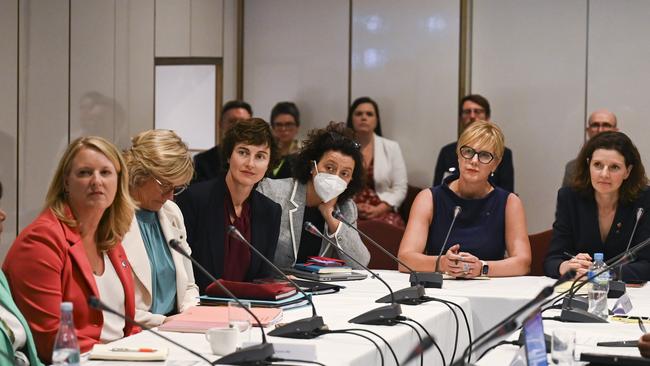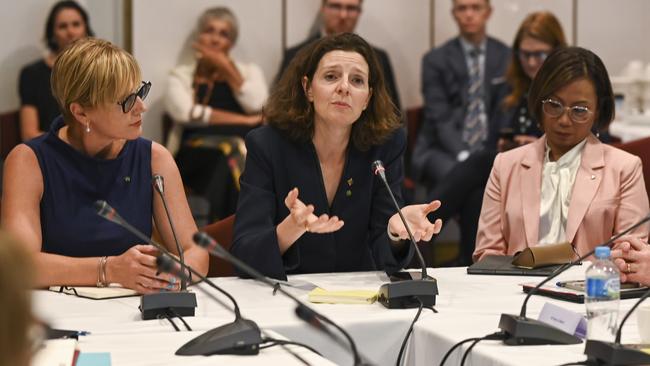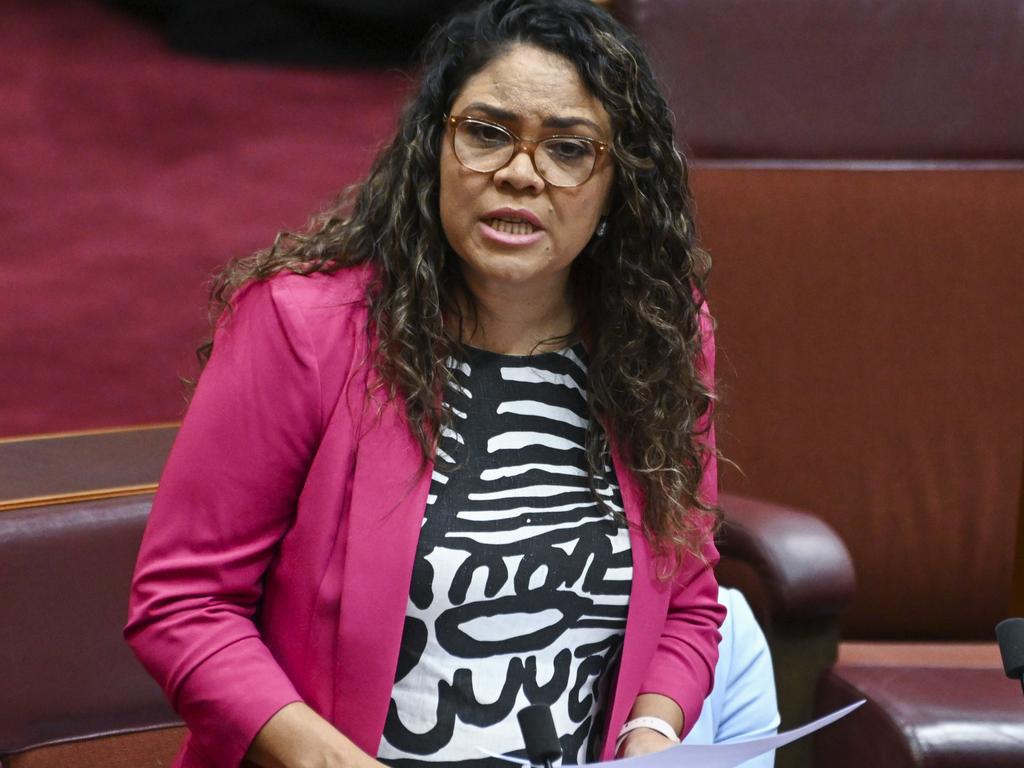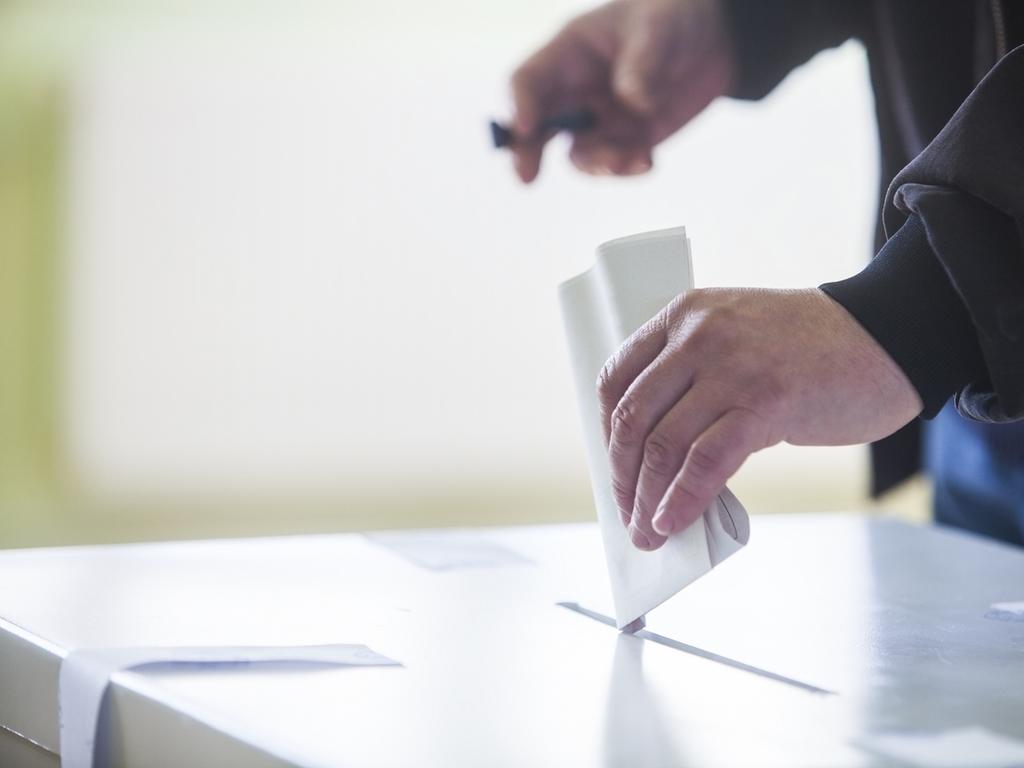Advisers split on voice power
The government’s expert team is divided whether to keep a reference to ‘executive government’, with some warning it would harm the chances of the referendum succeeding.

The expert group advising Anthony Albanese on how to ensure an Indigenous voice to parliament succeeds at the referendum has split over whether the body should make representations to executive government, amid concerns the current wording will sink the proposal.
The referendum working group – chaired by Indigenous Australians Minister Linda Burney and Special Envoy for Reconciliation Pat Dodson – held talks on Thursday with teal independents and separately with Peter Dutton and opposition legal affairs spokesman Julian Leeser.
But during their own internal discussions, the issue of whether to keep the reference to “executive government” in the constitutional amendment was raised, with some members warning it would harm the chances of the referendum succeeding.
It follows concerns from some legal experts and Liberal senator Andrew Bragg, who is in favour of a voice to parliament, that the power to make representations to the executive would open up the possibility of legal challenges in the High Court.
Senator Bragg raised the concern in a pamphlet he distributed to his colleagues last week, which was chiefly aimed at convincing Liberals to vote in favour of the voice while noting the legitimate issues surrounding the body.
One member of the working group told The Australian that the question of whether to remove the reference to executive government “was discussed”.
“Some were for, and some were against it,” they said.

Sources from the meeting said no definitive decision was reached on whether to advise the government to remove the words from the proposed constitutional amendment.
Sydney barrister David McClure wrote in The Australian last year that “a constitutionally guaranteed power to make representations to the executive is very likely to be matched by a reciprocal obligation on the executive to consider them”.
But constitutional law expert Anne Twomey hosed down the legal concerns as “nonsense”.
“All (the voice) can do is make representations. … It’s up to parliament to decide how this body is comprised and what its powers and functions are,” she said.
Mr Leeser said while the hour-long meeting with the working group had been productive, the Liberals still harboured concerns over the lack of detail and the amendment’s wording.
“The wording does keep changing, it started off with three sentences, then it became four sentences,” he said.
However, Mr Leeser said he had not put any proposal to the working group about what the wording of the constitutional amendment should be.
He said the Liberals did not currently believe the referendum would succeed, adding there was a “lack of proper process” around the design of the constitutional amendment.
“At this point in time we don’t think the referendum is on track for success,” he said. “(There is) a lack of detail about how the body would work. People need to have that detail to understand what it is they are going to vote for in a referendum.”
Mr Leeser urged the government to answer the Opposition Leader’s 15 questions and provide a “formal response” to the report by Tom Calma and Marcia Langton on a proposed design for the voice.
Working group member Thomas Mayor said Mr Dutton was told not to “use our lives as a political football” during the meeting, where the Liberal leader asked for Labor ministers to not be present.
It follows the Liberals raising other concerns about the referendum last week, including the lack of public funding for the Yes and No campaigns, which sources said had not been discussed at the meeting.
The Liberals said the legislation for a referendum should be opposed unless Labor agreed to create official Yes and No campaign entities and “adequately funded and resourced” them with an equal amount of taxpayer money. Working group member Megan Davis told The Australian public funding was not the norm and had been used only once, at a referendum in 1999. “All public funding will do is top up the ample resources that both sides already have. It would be a waste of taxpayers’ money,” she said.
Asked to respond to Coalition claims the government was attempting to “rig” the outcome of the referendum by declining to provide public funding for either side, Professor Davis said: “Public funding won’t stop one side enjoying an advantage over another.”
Coalition sources noted the republic referendum was the first one since donation laws were introduced, while the voice referendum would be the first since foreign interference and donation laws existed.
They said that was why the process needed to be “as orthodox as possible”.







To join the conversation, please log in. Don't have an account? Register
Join the conversation, you are commenting as Logout